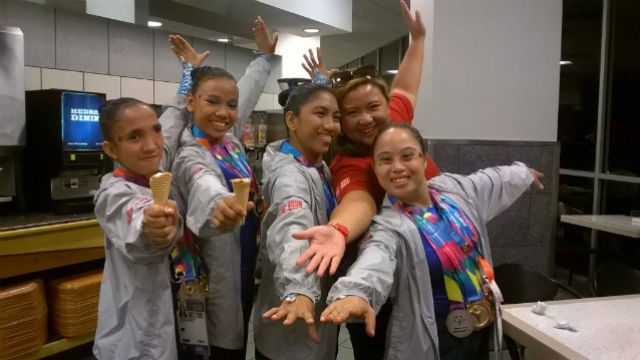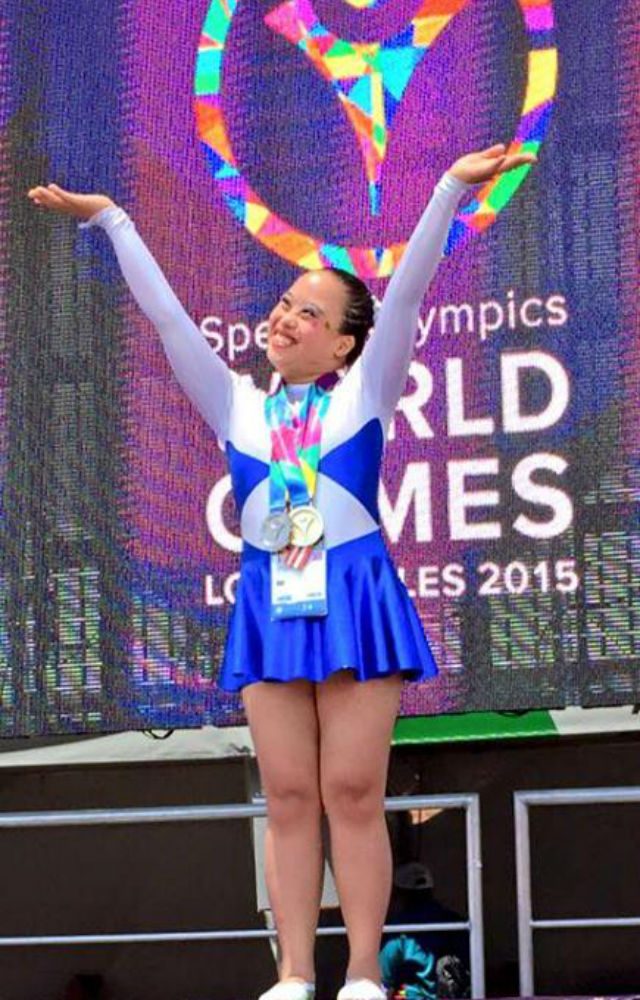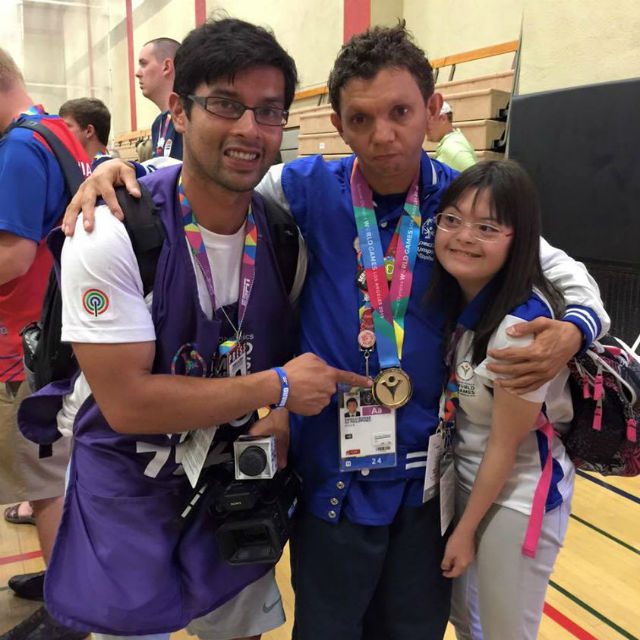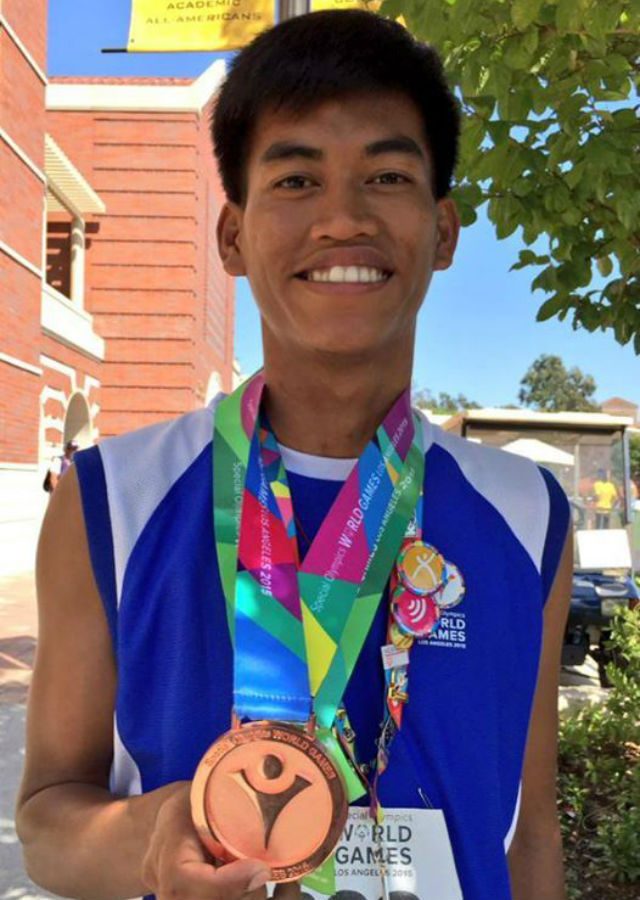All of them with varied intellectual disabilities, around 7,000 athletes from 177 countries joined the Special Olympics World Games for 2015, held from July 25 to August 1 in Los Angeles
MANILA, Philippines – Ringing in August with victory and high hopes, Filipino athletes from all over the country competed in worldwide Olympic sporting events and bagged 21 gold medals, 14 silver medals and 24 bronze medals.
What makes this celebration all the more sweet is that all our athletes are special.
The Special Olympics World Games for 2015 was held from July 25 to August 1 in Los Angeles with 7,000 athletes coming from 177 countries – all of them with varied intellectual disabilities.
The Philippine delegation brought over 35 athletes, with Luzon, Visayas and Mindanao fully represented.
A participant of the Special Olympics since 1991, the Philippines has been training athletes year in and year out. This year’s set of athletes took two 3 years to get to the sporting grounds, ready and qualified.
Out of the 25 sports hosted this year, the Philippines joined athletics, unified football, bowling, powerlifting, aquatics, gymnastics, and badminton.
A story of gold, silver, and bronze
A few days into the events, Tanya Denamarca from Iloilo won the Philippines’ first gold medal for gymnastics. From there, the Philippines filled its treasure trove of medals.
The haul of medals came across the board from gymnastics, swimming, football, track, badminton, and athletics.
In an interview with Asian Journal, Delia Ortega, head of the Philippine delegation and president of the country’s Special Olympics chapter, said that though the Philippines has definitely had its taste of victory in the past, this year saw more gold.
She added, “We’re very happy because those who won gold medals, some of them are first timers in the World Games.”

Photos above from Special Olympics Philippines’ Facebook page
A team victory
To get the country’s special athletes competing on a world level was an exercise in bayanihan.
Support for airfare and uniforms was given by groups such as the Philippine Sports Commission, Uniqlo, and the athletes’ personal and regional sponsors.
In Los Angeles, the loud cheers and cries of encouragement came from the Filipino community abroad. But some of the most valuable people behind the MVPs were their coaches and trainers, volunteers who’ve been with the athletes since the beginning.
Athletics’ coach Christian Doroin has been a coach for 16 years and he says it’s awe-inspiring to see them compete on the world stage. “To see these athletes run, swim, play, you get starstruck. We’re like the proudest parents of the best kids anyone can have.”
Knowing the athletes as well as he does, he says that for them, it isn’t really about how many medals they can hang around their neck. “These athletes are proud and happy to represent their region, their country, and their family. They want to make everyone proud,win or lose.”
Hard work and success
That they’ve excelled even with intellectual conditions some people would deem as “handicaps,” shows that being different doesn’t mean being unequal.
The Philippines’ 59 medals aren’t valuable because of their gold, silver, or bronze. They’re valuable as tangible, solid proof that regardless of where you come from and what you were born with, you deserve the same opportunities to work, study, compete, play, and live.
The world games were opportunities for the athletes to see this truth, too.
Despite how people may treat them and however they may perceive the world, their medals showed the simple connection between hard work and success.
Kyle Samson, Special Olympics National Executive Director shared with Asian Journal, “Just by looking at them smiling, very happy, you can see those who were quiet before are now becoming outgoing. And they’re saying that, ‘Yeah when we go back, our parents will be proud,’ or, ‘Our classmates won’t bully us anymore… So it’s really not just the sports that they won, it’s not the medals, but the experience that helped them grow. In just two weeks, they’ve changed.”
To continue giving them the victory and the confidence the sporting events bring, Special Olympics Philippines is on a constant search for coaches who can donate their time and their skill in transforming athletes and giving them a skill they can hone.
As Samson tells it, most of the athletes can’t communicate verbally, so to express themselves physically in the name of sport is an experience that takes them beyond their disability.
If you don’t have a sport, you can still help by being a chaperone, providing equipment or sports facilities, contribute financial support, or even just by letting people know about the cause. – Rappler.com





There are no comments yet. Add your comment to start the conversation.